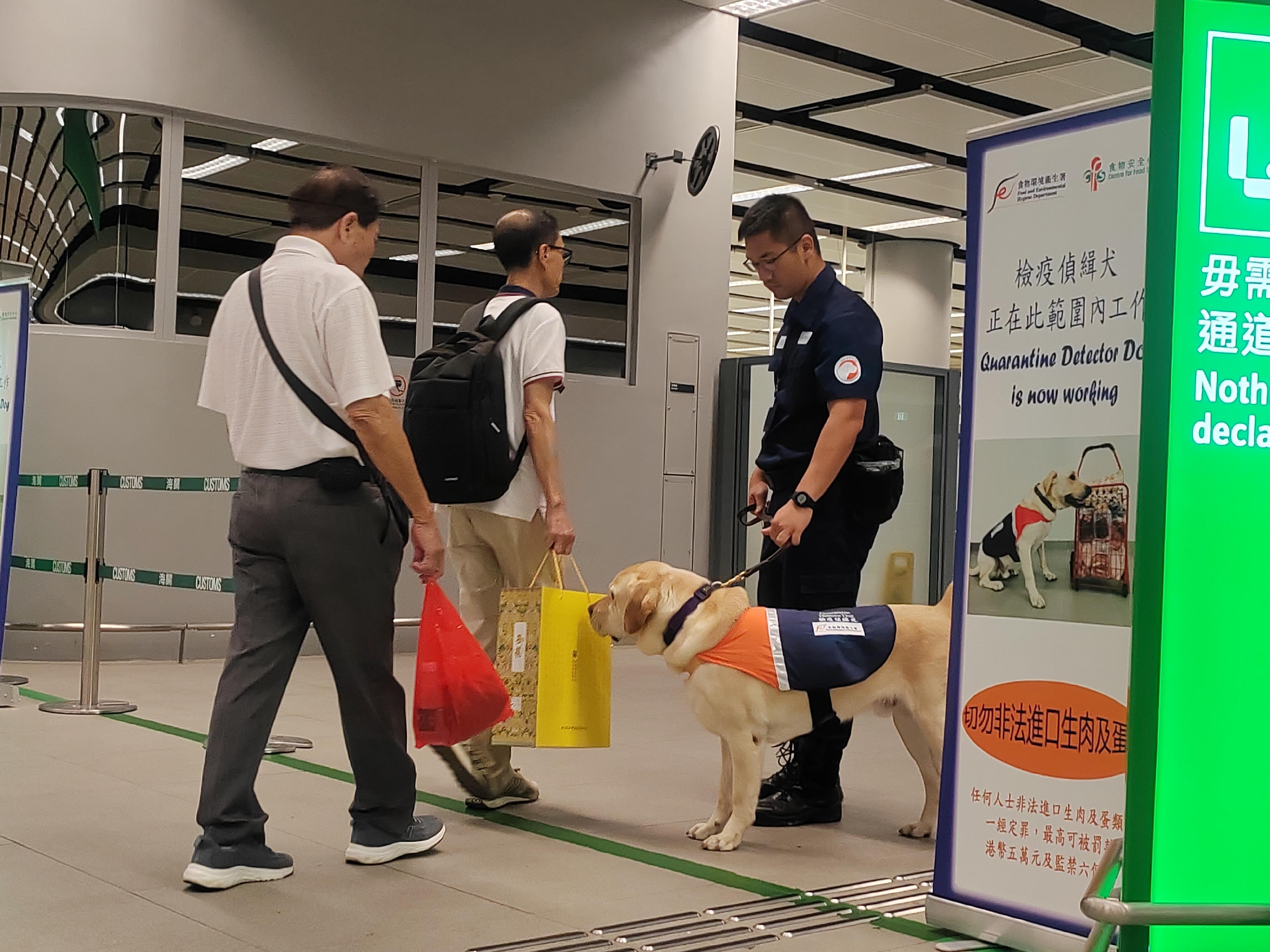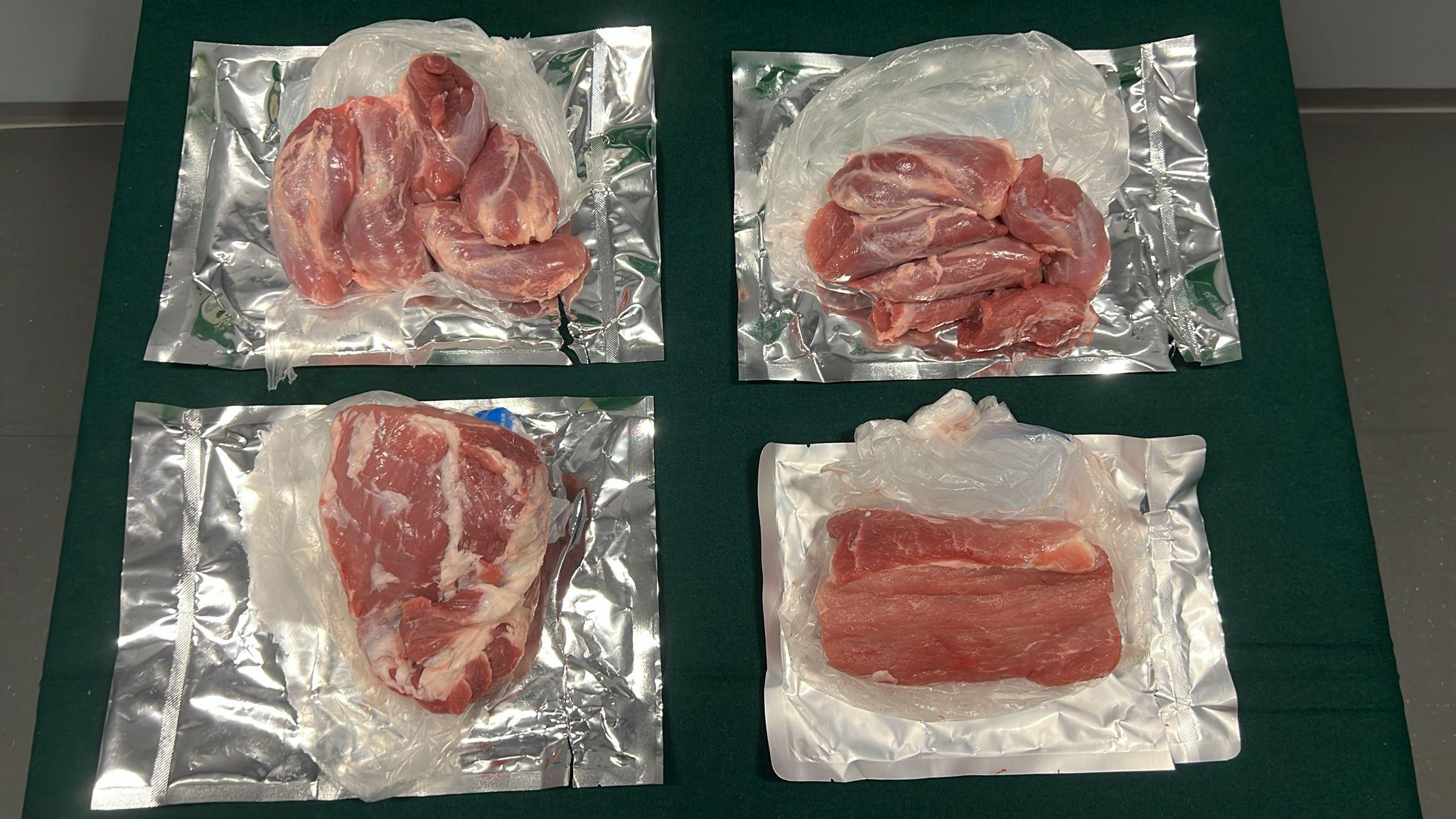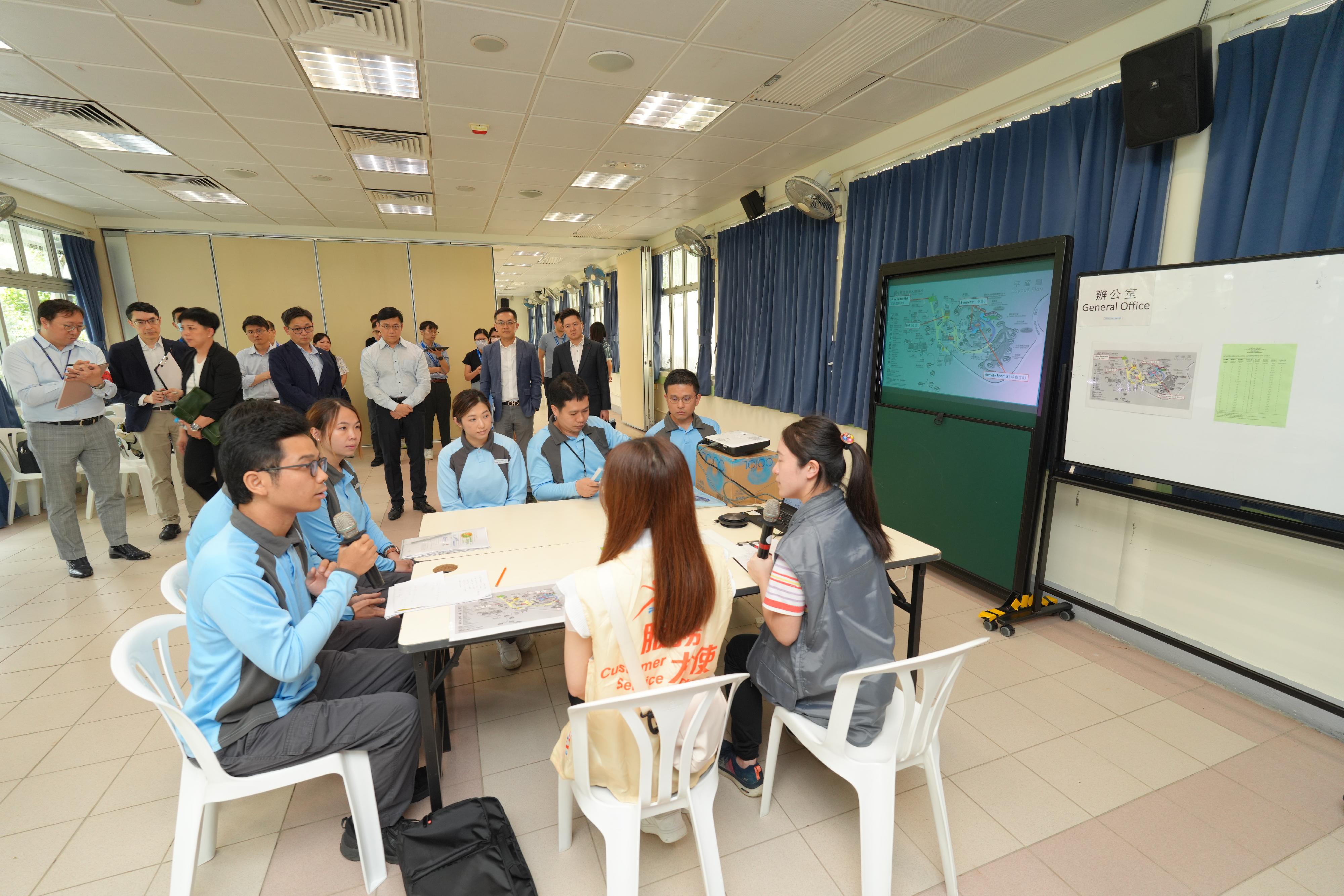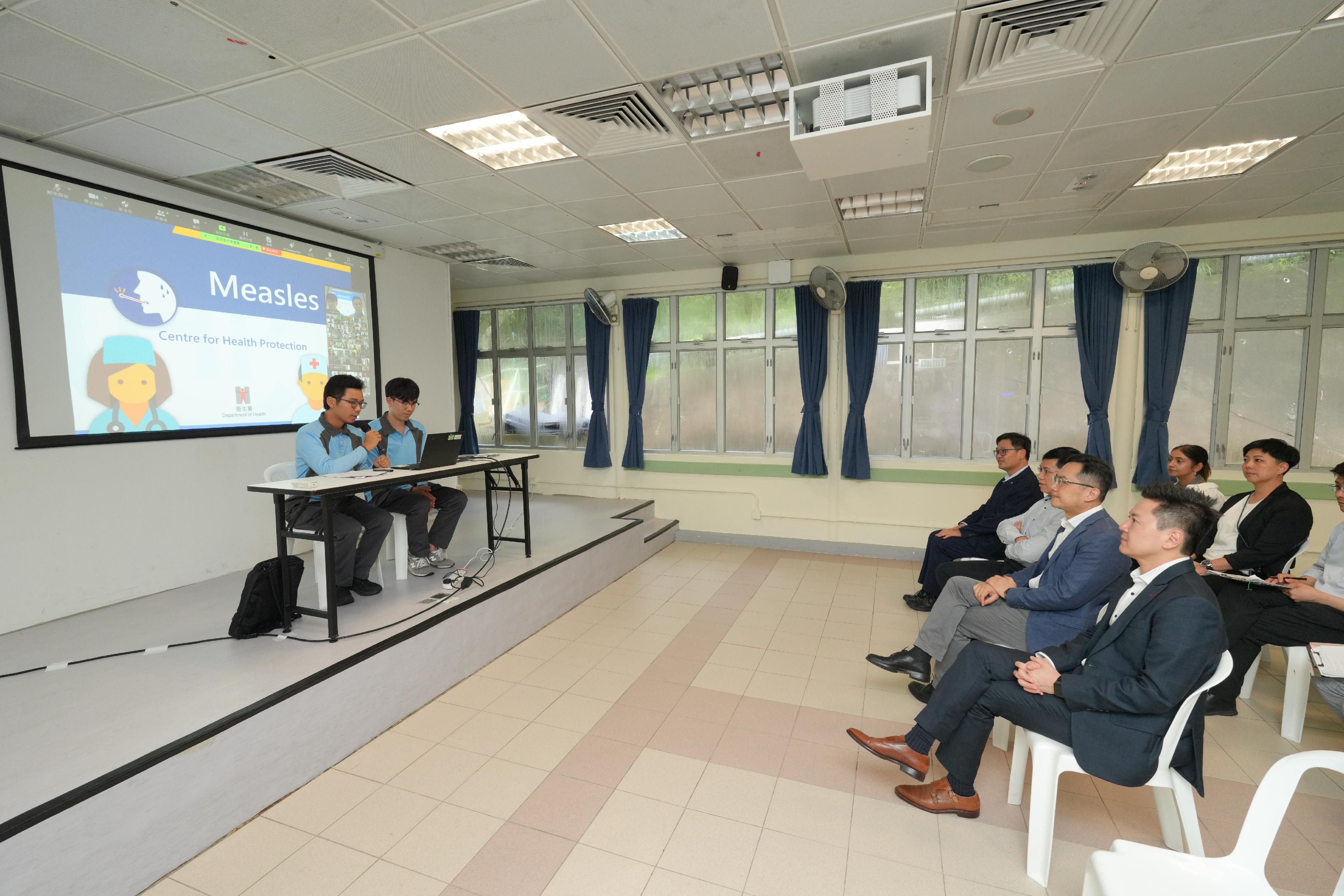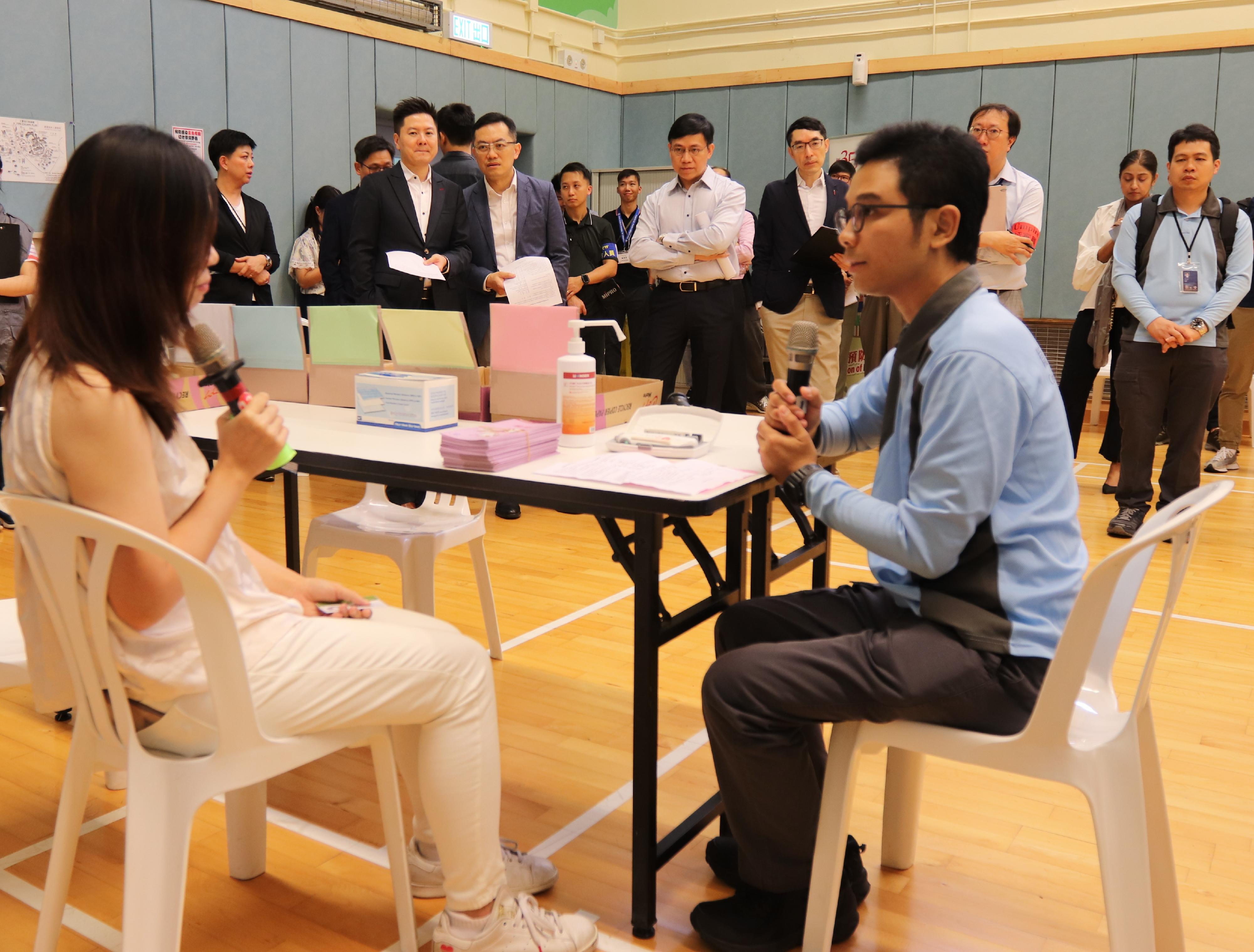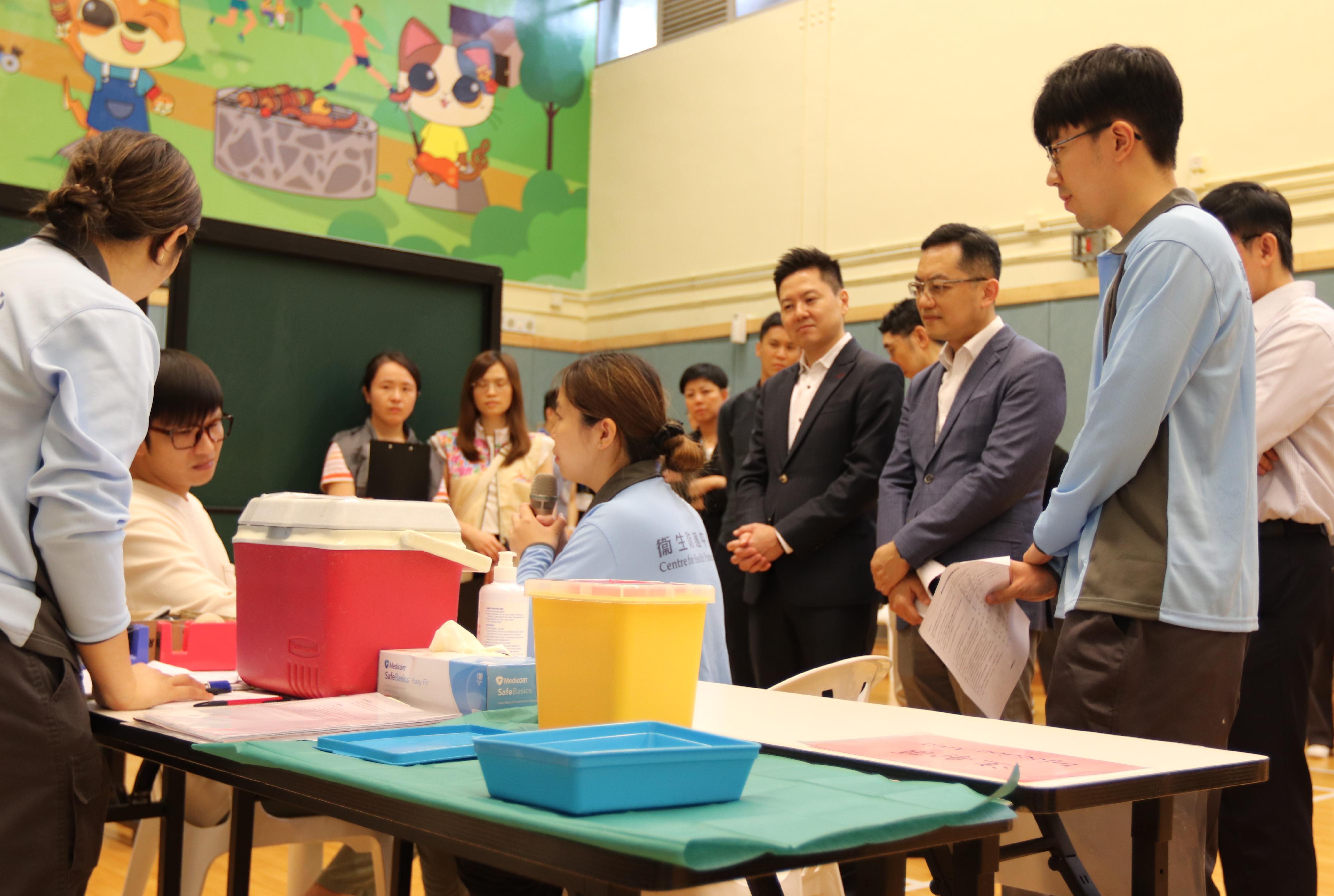The Centre for Health Protection (CHP) of the Department of Health (DH) today (June 13) held a public health exercise code-named "Kyanite" to test and strengthen the preparedness and co-ordination abilities of the Government in handling an imported case of measles, with a view to enhancing awareness among stakeholders on the handling of public health emergencies.
About 40 participants from the DH, the Leisure and Cultural Services Department, the Social Welfare Department, the Hospital Authority (HA) and the Airport Authority took part in the exercise or attended as observers. The exercise consisted of two parts. The first part was a table-top exercise conducted on June 5, in which the DH and the HA discussed and co-ordinated the response measures required in a simulated scenario when a case of measles infection occurred in an international youth leadership programme held in a holiday village, with subsequent identification of disease transmissions on the flight and in the hospital.
The second part, conducted today, was a ground movement exercise. Under the exercise simulation, upon notification by the HA of a case of measles infection, the CHP immediately commenced epidemiological investigations. An initial investigation revealed that the case was imported. The patient had not been vaccinated against measles and was an overseas visitor participating in an international event held in the holiday village. The CHP immediately conducted a site visit to the holiday village concerned, traced contacts of the index case, and carried out post-exposure vaccination and relevant follow-up actions. The CHP also inspected the environment of the holiday village and implemented appropriate infection control measures.
Measles is a highly infectious but vaccine-preventable disease. It can be transmitted by airborne droplets or direct contact with nasal or throat secretions of infected persons. A patient can pass the disease to other persons from four days before to four days after the appearance of a skin rash. The incubation period of measles ranges from seven days to 21 days. Symptoms of measles include fever, skin rash, cough, runny nose and red eyes. Vaccination is the most effective way to prevent measles.
The global immunisation coverage rates have dropped since the COVID-19 pandemic. Many countries worldwide are facing a resurgence of measles outbreaks. According to the World Health Organization, more than 320 000 measles cases were recorded in 2023 worldwide, and up to May 2024, nearly 180 000 measles cases have been recorded so far this year. Locally, a similar upsurge of measles cases was observed earlier this year. As at June 12, CHP has recorded eight cases of measles (including six imported cases), already exceeding the annual total in 2022 and 2023 (3 cases each). Among the eight cases, four were unvaccinated including two 11-month-old infants, and two cases had unknown vaccination history.
Hong Kong has achieved the interruption of endemic measles virus transmission since 2016. As the vaccination coverage of two doses of measles-containing vaccine in the local population were all along maintained at over 95 per cent, and the local seroprevalence rates of measles virus antibodies reflect that most of the people in Hong Kong are immune to measles, the risk of a large-scale measles outbreak in the local community is considered to be low. Nonetheless, as a metropolitan city with a high volume of international travel, Hong Kong has been constantly facing the risk of measles virus importation and the potential risk of further spread in the local community, especially amid the global measles resurgence in recent years.
A spokesman for the CHP said, "This exercise provided a valuable opportunity for relevant government departments and the HA to test the response capabilities of stakeholders in the handling of measles outbreaks. The DH has held nearly 30 similar exercises in the past, simulating the situation with cases such as novel influenza, Middle East Respiratory Syndrome, Ebola virus disease and plague. We hope that these exercises will enhance the community and healthcare personnel's awareness of possible epidemics and keep them alert and prepared."
The spokesman pointed out that getting vaccinated is the first step to prevent measles infection. Members of the public who are planning to travel to places with a high incidence or outbreaks of measles should review their vaccination history and past medical history, especially people born outside Hong Kong who might not have received a measles vaccination during childhood. Those who have not received two doses of measles-containing vaccines, with unknown vaccination history or unknown immunity against measles, are urged to consult their doctor for advice on vaccinations at least two weeks before departure.
Besides receiving vaccination, members of the public should take the following measures to prevent measles infection:
- Maintain good personal and environmental hygiene;
- Maintain good indoor ventilation;
- Keep hands clean and wash hands properly;
- Wash hands when they are dirtied by respiratory secretions, such as after sneezing;
- Cover the nose and mouth while sneezing or coughing and dispose of nasal and mouth discharge properly;
- Clean used toys and furniture properly; and
- Persons suspect to be suffering from measles should promptly consult a healthcare professional to receive appropriate medical care and management.
​For more information on measles, the public may visit the CHP's measles thematic page. Members of the public who are going to travel can visit the website of the DH's Travel Health Service for news of measles outbreaks outside Hong Kong.





